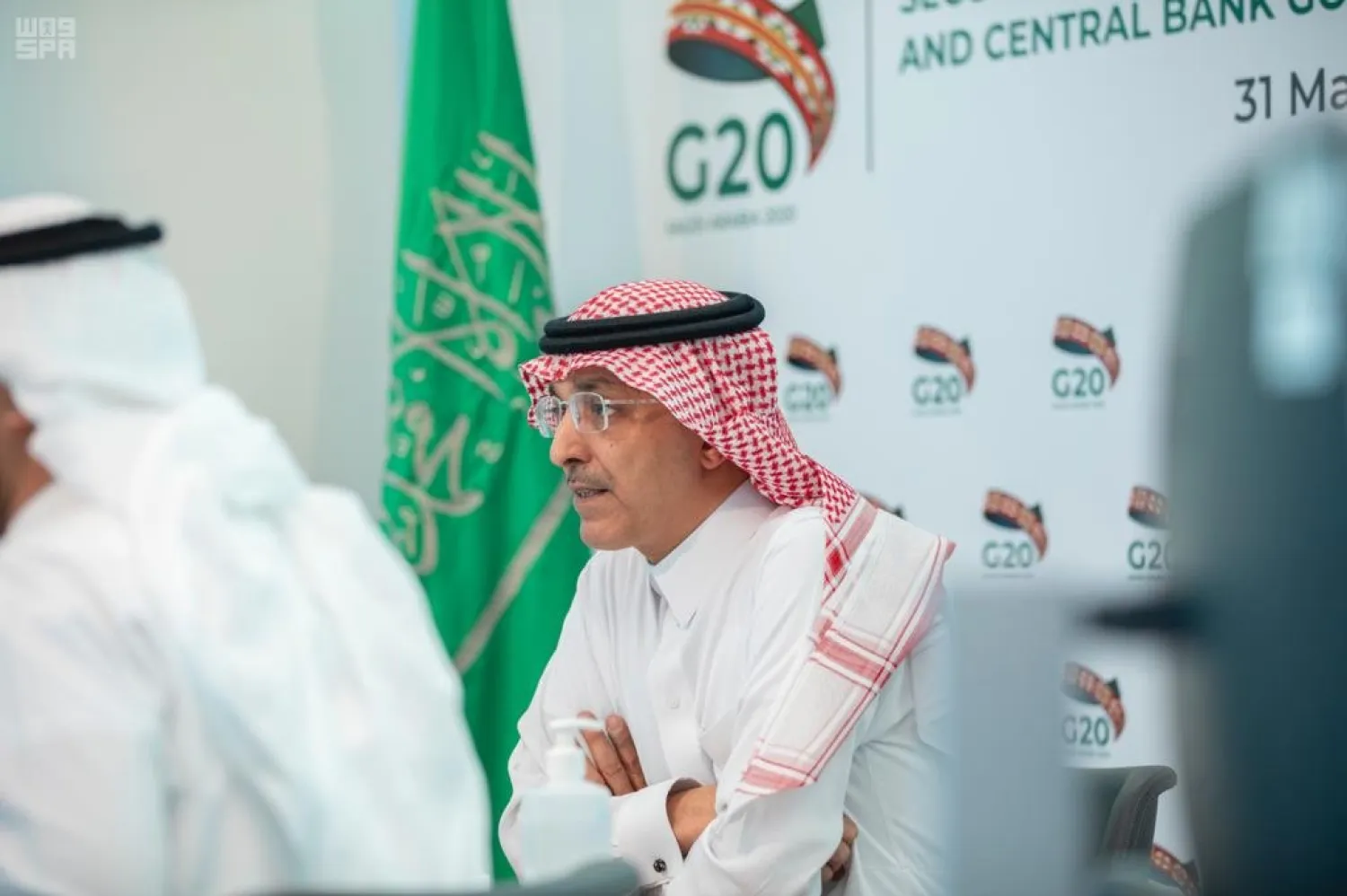Saudi Finance Minister Mohammed al-Jadaan stated on Wednesday that the coronavirus pandemic has taken a "great toll" and “extraordinary uncertainty” still remains about its depth.
Speaking during a summit for finance ministers of the Group of 20 major economies, he added that the group is “determined to spare no efforts individually, collectively, to overcome the pandemic, safeguard jobs, incomes and ensure the resilience of financial systems.”
“The G20 action plan aims to prevent a liquidity crisis from turning into a solvency crisis,” he remarked.
Saudi Arabia is currently chairing the G20 presidency.
Commenting on the G20 meeting, Jadaan said he was optimistic that “by continuing to work together, we will overcome the COVID-19 crisis and come out of this with strong recovery and prepared to address any future crisis.”
G20 members have injected over $7 trillion into the global economy to protect jobs, businesses and economies, he stated.
Asked about US-China tensions, he said he was “really grateful to G20 members and other stakeholders. We have not seen any political issues, but we have seen very clear solidarity and commitment to work through the G20 initiative.”
The G20 ministers agreed Wednesday to suspend debt service payments for the world's poorest countries from May 1 until the end of the year, as a group of private creditors also backed offering debt relief.
Debt suspension will last for one year, is unconditional and the only requirement is for countries to engage with the IMF, stressed Jadaan.
The G20 presidency is coordinating with the International Monetary Fund, doubling and in some cases tripling some of the liquidity pool to emerging markets and poor countries, he added. Most of these countries have already been notified.
Moreover, the G20 welcomed the recent OPEC+ agreement to ensure oil market stability.
Jadaan remarked that he believes that the oil GDP of the region and including Saudi Arabia will be reduced.
The minister added he was not happy with oil prices, but “we need to make sure that the energy market is balanced.”









